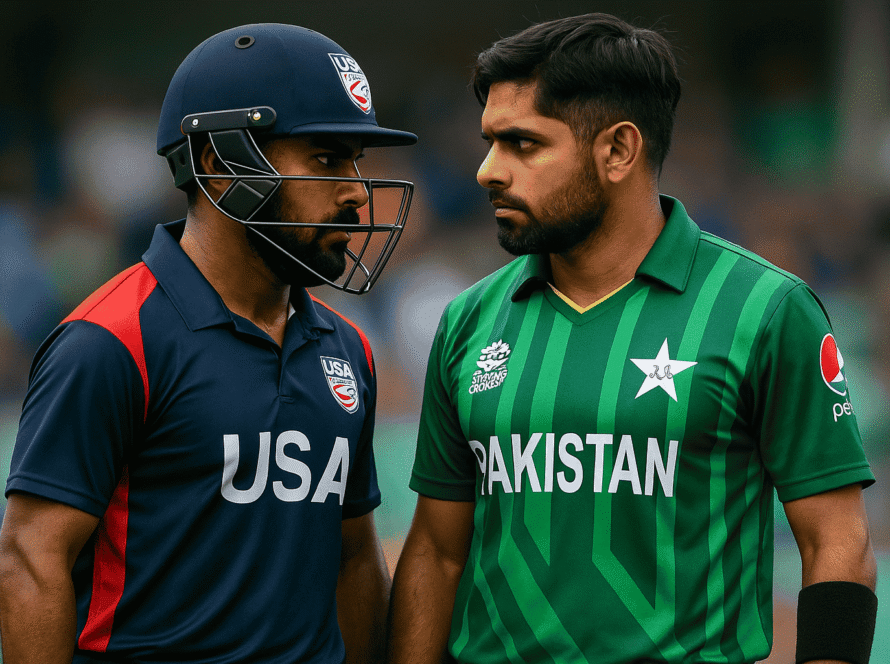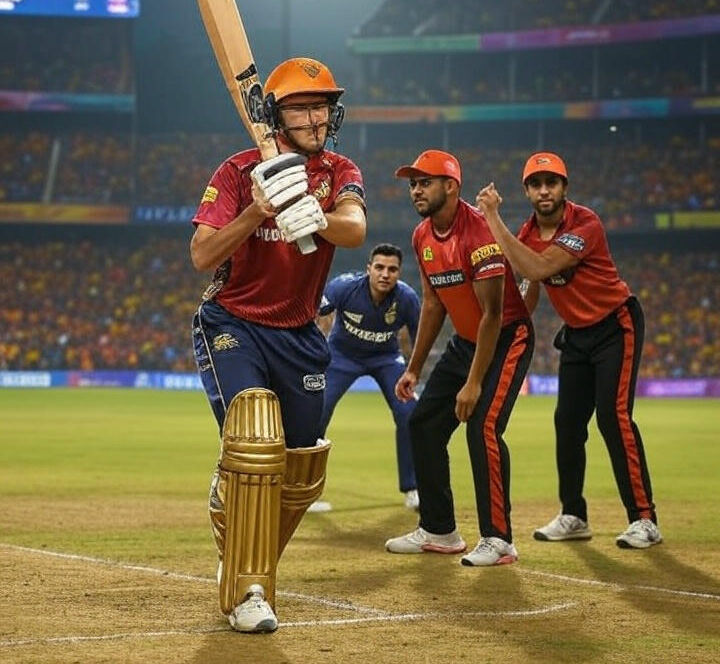The Indian Parliament witnessed intense drama on Monday as Shiv Sena (UBT) MP Arvind Sawant sparked a fiery debate over cricket relations between India and Pakistan. His statement that “India Not Playing Pak” cricket matches should continue became the center of heated discussions in the Lok Sabha, drawing support from unexpected quarters while highlighting the complex intersection of sports and politics in South Asian relations.
Parliamentary Thunder: Sawant’s Bold Stand
Arvind Sawant, representing the Shiv Sena (UBT) faction, stood firm in his conviction during the Parliamentary session. He articulated his position with characteristic boldness, stating that India should refrain from playing cricket with Pakistan given the ongoing tensions between the two nations. His remarks came during a broader discussion on Operation Sindoor, adding another layer of complexity to an already charged political atmosphere.
The Mumbai South constituency representative didn’t mince words when addressing the house. He questioned the government’s approach toward Pakistan, particularly criticizing the decision to halt military operations without imposing stringent conditions. Sawant’s passionate delivery resonated across party lines, even as it sparked controversy and debate among parliamentarians.
Unexpected Alliance: Owaisi Joins the Chorus
In a rare display of political alignment, AIMIM leader Asaduddin Owaisi supported Sawant’s position on the cricket boycott. Owaisi’s backing came as a surprise to many observers, considering the ideological differences between the two political parties. This unusual partnership demonstrated how certain national issues can transcend traditional political boundaries.
The timing of these statements proved particularly significant. With the Asia Cup 2025 approaching, questions about India’s participation against Pakistan have gained renewed urgency. Both parliamentarians emphasized that sporting ties cannot remain isolated from broader diplomatic and security concerns affecting the two nations.
Historical Context: Cricket Diplomacy Under Strain
Cricket has long served as both a bridge and a battleground in India-Pakistan relations. The sport’s unique position in South Asian culture makes it a powerful diplomatic tool, but recent events have strained this traditional “cricket diplomacy.” The concept of “India Not Playing Pak” reflects deeper anxieties about national security and cross-border tensions.
Previous cricket series between the two nations have often coincided with periods of political thaw. However, security concerns and terrorist incidents have repeatedly disrupted these sporting exchanges. The 2008 Mumbai attacks marked a significant turning point, leading to reduced bilateral cricket engagements and increased scrutiny of sporting ties.
Opposition’s Broader Critique
Sawant’s cricket-related comments formed part of a wider opposition critique of the government’s Pakistan policy. He specifically questioned why Pakistan-occupied Kashmir wasn’t reclaimed during recent military confrontations. “This was the time. Why didn’t you bring it back?” he demanded, challenging the government’s strategic decisions.
The debate extended beyond sports, encompassing military strategy, diplomatic relations, and national security concerns. Opposition members used the cricket issue as a metaphor for what they perceived as the government’s inconsistent approach toward Pakistan. They argued that continued sporting ties send mixed signals while security threats persist.
Public Sentiment and National Security
The “India Not Playing Pak” sentiment reflects broader public opinion shaped by decades of cross-border terrorism and military conflicts. Many citizens view cricket matches as inappropriate when soldiers face danger at the borders. This perspective gains particular traction during periods of heightened tension or after terrorist incidents.
Security agencies have repeatedly raised concerns about large-scale sporting events involving Pakistan. The logistics of ensuring player safety, managing crowd emotions, and preventing security breaches create significant challenges. These practical considerations often overshadow the sport’s unifying potential.
Asia Cup 2025: The Immediate Challenge
The upcoming Asia Cup 2025 presents an immediate test case for India’s cricket diplomacy. Sawant’s parliamentary intervention comes at a crucial time when the Board of Control for Cricket in India (BCCI) must decide on participation strategies. The tournament’s format and venue selections could significantly impact bilateral sporting relations.
Cricket administrators face mounting pressure to balance sporting commitments with political realities. The “India Not Playing Pak” debate adds another dimension to their decision-making process. Previous tournaments have witnessed last-minute venue changes and format modifications to accommodate political sensitivities.
Economic Implications of Cricket Boycotts
Beyond political symbolism, cricket boycotts carry substantial economic consequences. India-Pakistan matches generate massive television revenues, sponsorship deals, and tourism income. The financial stakes involved often complicate political decisions about sporting boycotts.
Broadcasting rights holders, sponsors, and cricket boards face significant losses when high-profile matches get canceled. The economic ripple effects extend to hotels, restaurants, and local businesses that benefit from cricket tourism. These commercial considerations add complexity to the “India Not Playing Pak” debate.
Parliamentary Procedures and Debate Quality
The Lok Sabha session demonstrated both the strengths and weaknesses of parliamentary democracy. While passionate debates like Sawant’s cricket comments engage public attention, critics argue that such discussions sometimes overshadow more pressing legislative business. The balance between political theater and substantive policy-making remains a constant challenge.
Sawant’s intervention showcased his ability to connect complex geopolitical issues with popular cultural touchstones like cricket. His rhetorical skills and timing ensured maximum media coverage for his position. However, opponents criticized the focus on sports when more urgent national issues demanded attention.
Media Coverage and Public Reaction
The “India Not Playing Pak” controversy generated extensive media coverage across print, electronic, and digital platforms. Social media discussions ranged from passionate support to sharp criticism of the position. The debate revealed deep divisions in public opinion about sports-politics intersections.
News channels devoted significant airtime to analyzing the parliamentary exchanges. Expert panels debated the merits of sporting boycotts versus diplomatic engagement through cricket. The coverage highlighted how sports-related political statements can dominate news cycles and shape public discourse.
Regional Political Dynamics
Sawant’s position reflects broader Maharashtrian political sentiments, particularly given Mumbai’s experiences with cross-border terrorism. His Shiv Sena (UBT) background adds another layer of regional political consideration to the national debate. The statement resonates with constituents who prioritize security concerns over sporting ties.
The fragmented nature of Indian politics means that positions on Pakistan policy often vary across parties and regions. Sawant’s stance represents one viewpoint in a complex political landscape where consensus on Pakistan relations remains elusive. Regional parties often take harder positions than national parties on cross-border issues.
Future Implications for Sports Diplomacy
The parliamentary debate raises fundamental questions about the future of sports diplomacy in South Asia. If the “India Not Playing Pak” position gains broader political acceptance, it could significantly alter the region’s sporting landscape. Traditional tournaments and bilateral series might require fundamental restructuring.
Cricket’s role as a diplomatic tool faces unprecedented challenges in the current political climate. The sport’s ability to transcend political boundaries, once taken for granted, now appears increasingly fragile. Future sports administrators will need to navigate these political sensitivities more carefully.
The debate initiated by Arvind Sawant reflects deeper tensions in India-Pakistan relations that extend far beyond cricket grounds. As both nations grapple with security concerns, political pressures, and public sentiments, the future of sporting ties remains uncertain. The “India Not Playing Pak” position, while controversial, represents a significant voice in ongoing discussions about how sports and politics intersect in South Asian diplomacy.
The parliamentary intervention ensures that cricket diplomacy will remain under scrutiny, with every future engagement subject to political evaluation. Whether this leads to enhanced security measures or complete sporting disengagement remains to be seen, but Sawant’s fiery debate has certainly changed the conversation around India-Pakistan cricket relations.



